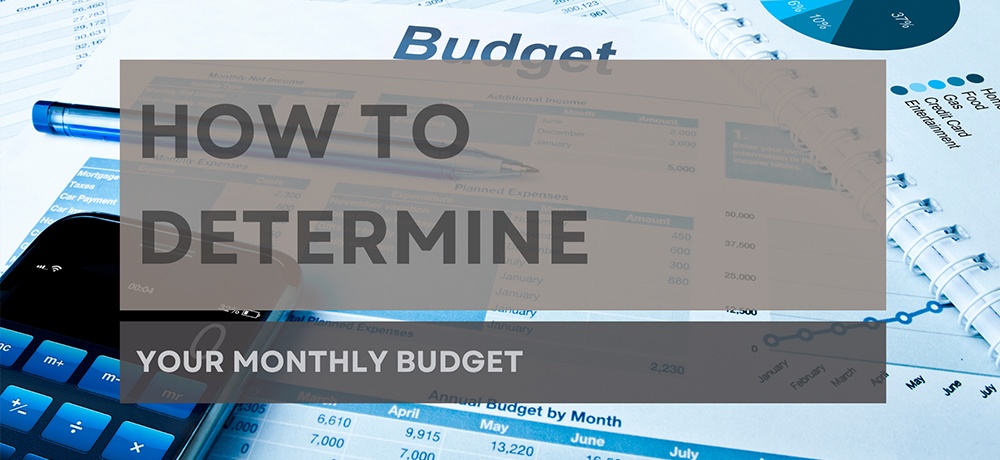How-to Determine Your Monthly Budget

Let’s get a handle on those finances.
We’ve spoken many times about the various ways there are to save money and budget, but maybe we need to break it down further. Maybe we need to decipher what a “budget” is to help ensure you are doing the right things to save money.
Creating a monthly budget is an essential step in taking control of your financial life. Whether you're striving to save for a big purchase, pay off debt, or simply manage your expenses more effectively, a well-structured budget is your road map to financial success.
Now let’s figure out what a healthy monthly budget consists of and hopefully provide some insight into a better understanding of your income and expenses.
Calculate Your Monthly Income
The first step in creating a monthly budget is to calculate your total monthly income. This includes your salary or wages, any additional sources of income like rental income or freelance work, and any recurring sources of money. Ensure you use your net income (after taxes and deductions) for accuracy.
List Your Fixed Expenses
Next, list your fixed expenses. These are expenses that remain relatively constant each month, such as:
- Rent or mortgage payments
- Utilities (electricity, water, gas)
- Insurance premiums (health, auto, home)
- Loan payments (student loans, car loans, etc.)
- Subscriptions (internet, streaming services)
- Transportation costs (fuel, public transportation, maintenance)
Gather all your bills and statements to get an accurate picture of these fixed expenses.
Account for Variable Expenses
Variable expenses can fluctuate from month to month, so they require a bit more tracking and estimation. They can include categories like:
- Groceries
- Dining out
- Entertainment
- Shopping
- Health and wellness (e.g., gym memberships, healthcare costs)
To estimate variable expenses, review your past spending habits or use apps and tools that categorize your spending automatically.
Plan for Irregular Expenses
Don't forget to budget for irregular or annual expenses like holidays and gifts, emergency home or vehicle repairs or even taxes if they’re not withheld from your paycheck.
Calculate the annual cost of these items and divide by 12 to incorporate them into your monthly budget.
Set Savings Goals
Budgeting isn't just about covering your expenses; it's also about achieving your financial goals. Whether you're saving for a vacation, an emergency fund, or a home, allocate a portion of your income toward these goals. Make saving a non-negotiable part of your budget.
Track and Adjust
Once you've established your budget, it's crucial to track your spending regularly. Use apps, spreadsheets, or budgeting tools to monitor your actual expenses compared to your budgeted amounts. If you overspend in one category, adjust your budget for the following month accordingly.
Emergency Fund and Debt Repayment
Prioritize building an emergency fund to cover unexpected expenses and pay down high-interest debt like credit cards. Allocating a portion of your budget to these objectives will provide financial security and reduce your interest expenses over time.
Be Flexible
Life is unpredictable, and unexpected expenses can arise. Don't be too hard on yourself if you need to adjust your budget occasionally. The key is to maintain awareness of your financial situation and adapt as needed.
Determining a monthly budget is an essential tool for achieving your financial goals and maintaining financial stability, especially if one of those goals is to own a home.
By calculating your income, listing fixed and variable expenses, accounting for irregular costs, setting savings goals, and tracking your spending, you can create a budget that suits your needs and aligns with your financial aspirations. Remember that a budget is a dynamic tool; revisit and adjust it regularly to ensure you stay on the path to financial success.